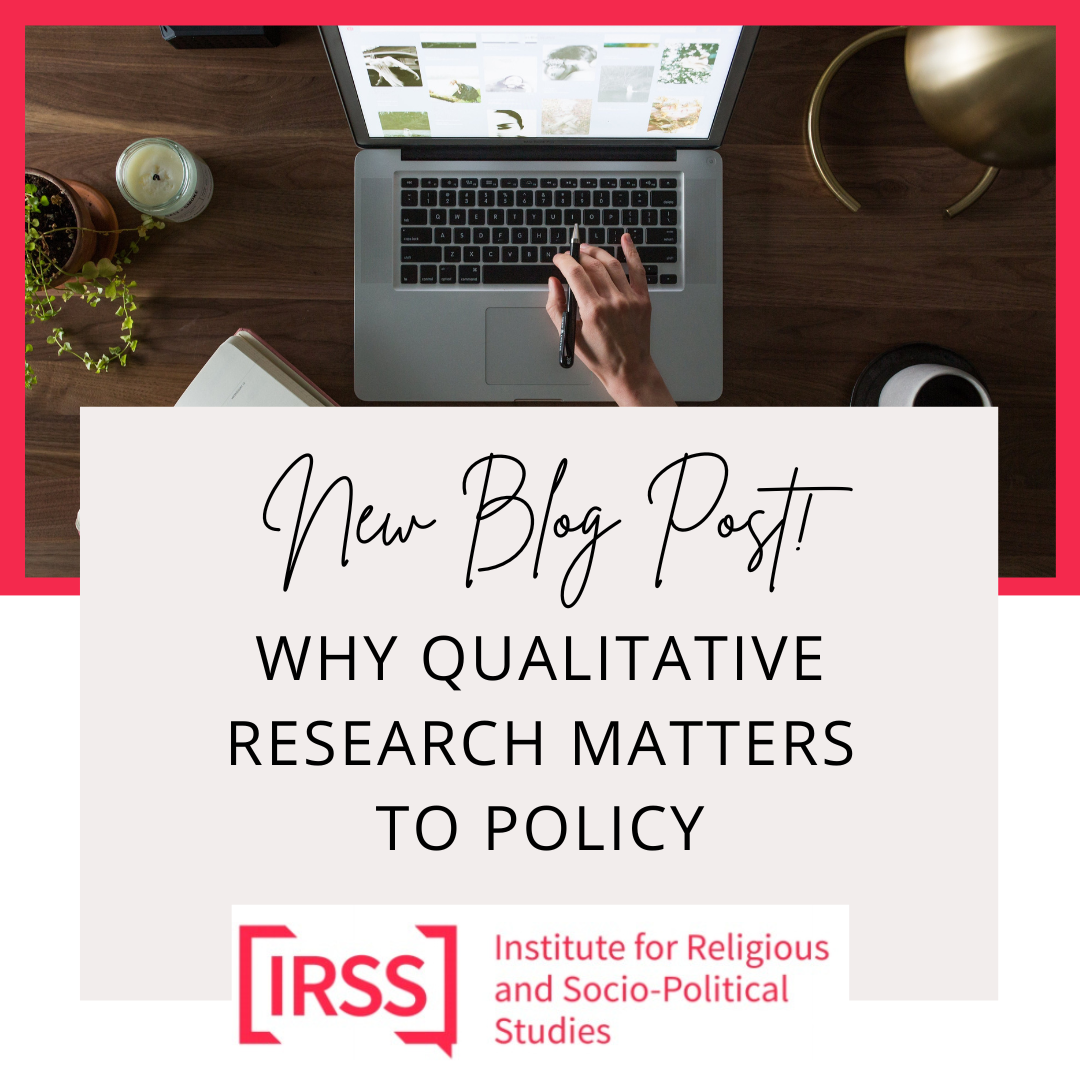
Why Qualitative Research Matters to Policy
- Post by: irss
- August 4, 2022
- No Comment
Qualitative research is research that relies on data sources such as interviews, questionnaires, observation, text or image documents, artifacts and more. In other words, any kind of data that cannot be quantified, or measured in numerical terms. Qualitative research typically focuses on understanding concepts, perceptions, and experiences. For example, a quantitative study of the Muslim population in a city could use population data to identify that there has been significant growth in the number of newcomers from a particular country. A qualitative study might be able to identify why that group of newcomers has chosen that particular city, or be able to gain insight into what their experiences of immigration and settling into the city have been like. Another qualitative study might examine how these newcomers are perceived and welcomed in the wider Muslim community or the city in general.
Both kinds of research are important to informing policy making. Policy that is grounded in rigorous academic research is more effective, relevant and resilient to challenge. Research-based policy is therefore important for all kinds of organizations and service providers, including government, non-profit and community organizations. To continue the example used above, the quantitative study of changing Muslim demographics in a city could help a community organization to identify that growing group of newcomers as a target demographic for their programs, leading to a reassessment of those programs to make them more relevant. Meanwhile, the qualitative study of those newcomers’ experiences could help identify unique needs which are not being filled by the city’s community groups and service providers and help determine how to make the organization’s programs more relevant.
Qualitative research can take many forms; drawing on different types and sources of data, using different analytical methods and theoretical frameworks, and answering an endless array of research questions. Qualitative studies are generally not as large as quantitative studies. The gathering and analysis of qualitative data is labour intensive. Nonetheless, qualitative studies offer particular kinds of insights and answers which are usually inaccessible through quantitative data. Smaller scale qualitative studies can be richly detailed, allowing researchers to delve into the topic in greater depth. They can also elicit greater nuance in their analysis and findings, as qualitative data introduces a human voice that is lacking in large, quantitative datasets. This detail, nuance, and humanity makes qualitative research especially effective in illustrating the impacts of policy.
Not only does qualitative research provide unique insights and allow for rich, nuanced analysis of a topic or question, it often reinforces quantitative findings. Quantitative and qualitative research can reinforce and provide direction for each other, with quantitative findings identifying high-level trends and lending statistical support to observed phenomena, and qualitative findings providing detail and conceptual understanding.
Policy-makers sometimes automatically turn to quantitative studies and data to inform their decision making because numerical data is specific and seemingly certain and objective. However, social policy is made for people and the human voices, detail and nuance of qualitative research is therefore essential to effective policy.
